Do you find that coffee has no effect on you? I used to find coffee helped to wake me up but in the last few years coffee stopped being helpful.
When I was diagnosed with adult ADHD I found out that this can be a sign of ADHD. This occurs because caffeine in coffee is a stimulant which can actually be calming, not energizing for some ADHDers.
Some people even find that coffee makes them sleepy!
In this post I’ll talk about how caffeine works on the brain, and the reasons caffeine may have no effect on you.
I’ll cover how to get the greatest benefit from caffeine, and explain that just as I was, you’ve probably been drinking your coffee the wrong way for years!
Why Does Coffee Make Me Tired?
A lot of adults diagnosed with ADHD say caffeine ‘mellows them out’ rather than ‘revving them up’.
Some people find that caffeine doesn’t wake them up as much as it does for other people, or even makes them tired!

Stimulant medications are first line treatment for ADHD, and they work by increasing dopamine levels in the brain. They help those with ADHD by reducing hyperactivity (‘mellowing’ you out) and reducing distractibility (helping you to focus).
Caffeine is also a stimulant, and it also increases dopamine in the brain. Which can also help with motivation and energy.
But before we dive deeper into the link between caffeine and ADHD, let’s look at other reasons that caffeine may not be having an effect on you.
Coffee Doesn’t Wake You Up
For anyone who is sensitive to caffeine it seems surprising when another person isn’t affected by caffeine at all.

Reasons why caffeine doesn’t affect you can include being too exhausted for caffeine to work, rebound fatigue from too much caffeine, having developed tolerance to caffeine, or needing a higher dose of caffeine. Genetic causes can be differences in the caffeine receptor in the brain, or having ADHD.
Coffee Makes Me Sleepy
If you are really exhausted, caffeine cannot make up for your sleep deprivation.
This comes down to understanding how caffeine works on the brain to make you alert.
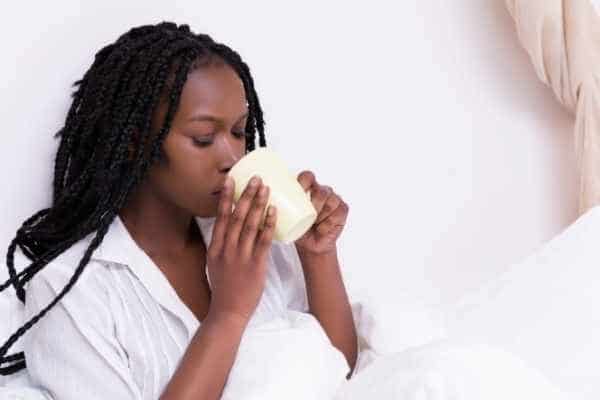
Sleepiness is caused by adenosine, which our body naturally increases to make us feel sleepy. Caffeine works by binding to the adenosine receptor in the brain, then caffeine blocks adenosine from making us sleepy.
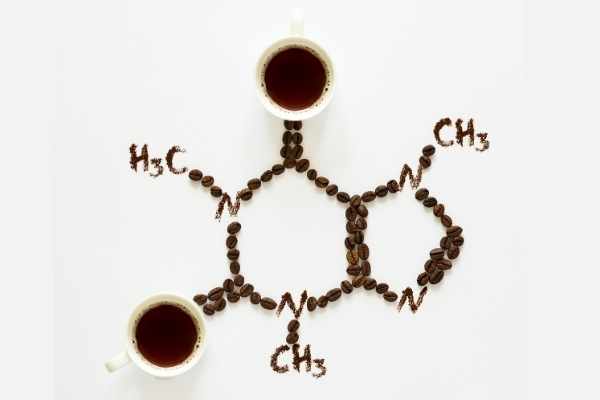
Basically caffeine blocks out the ‘sleepiness signal’ in your brain.
If you are a bit exhausted you may just need more caffeine than usual to work.
But sleep deprivation produces more and more adenosine in the brain.
At a certain point no amount of caffeine can help with extreme exhaustion, because there is just too much adenosine to block.
You need to sleep!
Coffee Doesn’t Work: Too much caffeine
Ok, now we understand why if you are really exhausted, drinking coffee won’t work as well. But guess what? It also can result in being even more tired when caffeine wears off!

This is because when caffeine wears off, adenosine can bind to the receptor again, and it sticks even better than before (with greater affinity in scientific terms).
This rebound fatigue is even worse than your initial fatigue!
So now you feel even more tired than you did before!
Why Doesn’t Coffee Work: Not Enough Caffeine
So this possibility isn’t rocket science, obviously if you don’t have enough caffeine it won’t work to wake you up.

Did you accidentally pour your coffee from the decaf pot?
Hey, it happens! Especially when we are tired.
Why Caffeine Doesn’t Affect Me: Tolerance (You’ve Gotten Used to Caffeine)
Another option is that you are not getting enough caffeine to have an effect because you have developed a tolerance to caffeine.
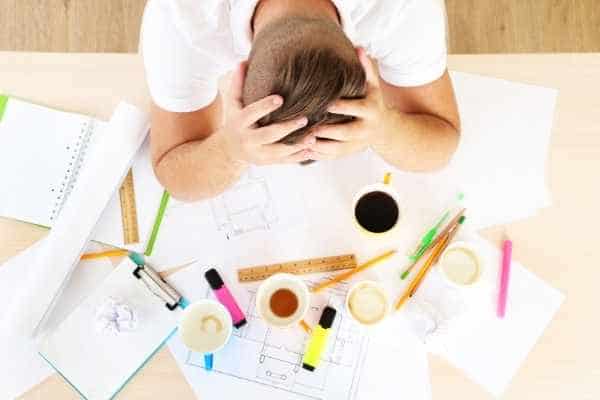
You start with one coffee, then two, then another in the afternoon. Eventually you are drinking multiple coffees a day and not getting the alertness you used to.
Scientists have literally proven this happens:
Strong tolerance develops to the psychostimulant effects of caffeine upon daily caffeine exposure.
So take a break from your caffeine habit for bit so you can reset how your body reacts to caffeine.
Caffeine Doesn’t Work: Genetics
We all know friends who can drink tons of coffee, and that other friends who are so sensitive to caffeine they won’t consider anything but decaf.

This may be due to genetics, specifically genetic variations in the adenosine receptor in our brains.
Some people actually have a mutant form of the adenosine receptor, so caffeine literally does not work at all for them! It doesn’t matter what the time of day they drink their coffee or tea.
You can also be a slow or quick metabolizer of caffeine, again based on your genetics.
95% of caffeine metabolism is in the liver and different variants of liver enzymes change the way you metabolize caffeine.
Coffee Makes Me Sleepy: ADHD?
OK, so we covered other causes of caffeine not having an effect. But could coffee making you sleepy be a sign of adult ADHD?
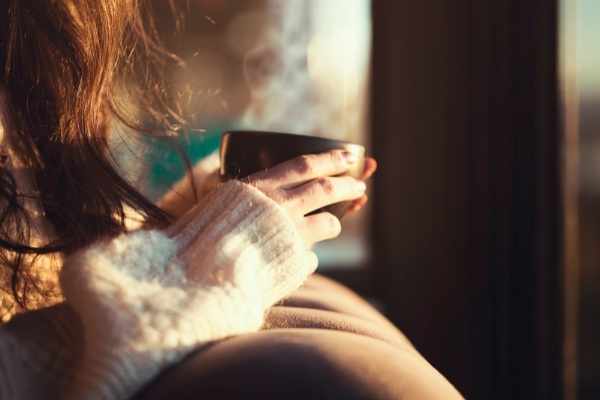
There are no scientific studies on this. But there is a story of an ADHD expert using sleepiness from coffee as part of an ‘unofficial adult ADHD diagnosis’.
Will Henshall, ADHD entrepreneur and founder of Focus@Will (a music streaming service design to improve focus) tells the story of learning he had adult ADHD.
Dr. Ned Hallowell, ADHD expert and author (including the most recent ADHD 2.0) joined scientific team of Focus@Will. As they worked together, it didn’t take long for Dr. Hallowell to say to Will: ‘Oh, you are one of us!’.
Dr. Hallowell meant that Will also had ADHD.
Will was shocked so Dr. Hallowell asked him a few more questions. His informal diagnosis was based on their interactions and also 3 questions he asked Will.
- ‘If you drink coffee, what happens?’ – ‘Oh it makes me sleepy.’
- ‘Are you good under pressure?’ – ‘Yeah, I am really good under pressure.’
- ‘Are you a start up entrepreneur?’ – ‘I am!’
Dr. Hallowell wasn’t surprised by the answers, and the informal diagnosis was made: ‘Yep, you’ve got ADHD’. (By the way, here are some more formal tools to diagnose adult ADHD.)
Does Caffeine Help ADHD?
It turns out that yes! Caffeine can help with ADHD symptoms!
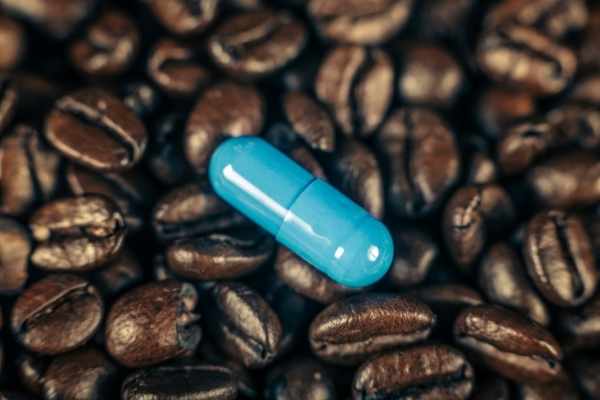
Stimulant medications help about 80% of people diagnosed with ADHD, which is pretty amazing! But for that small percentage of people with ADHD that do not respond to stimulant mediations – caffeine can help.
In fact Dr. Ned Hallowell is in this group, and he loves his coffee!
We also love coffee, as caffeine is the best over-the-counter focus medication that there is. Just drink it in moderation and watch for side effects.
ADHD 2.0
Caffeine can help with the distractibility associated with ADHD, or ADHD traits which is now called VAST (Variable Attention Stimulus Trait).
It has even been studied. In one study of Army soldiers caffeine pills helped the soldiers to keep their attention on repetitive work, complete tasks faster and reduced impulsive behaviour (driving fast).

Why does caffeine help ADHD? As mentioned, caffeine binds to an adenosine receptor in the brain.
After binding at this receptor, dopamine neurotransmission is also increased.
Scientists have recently discovered the specific adenosine receptor that caffeine binds to: the striatal A2AR–D2R heterotetramer.
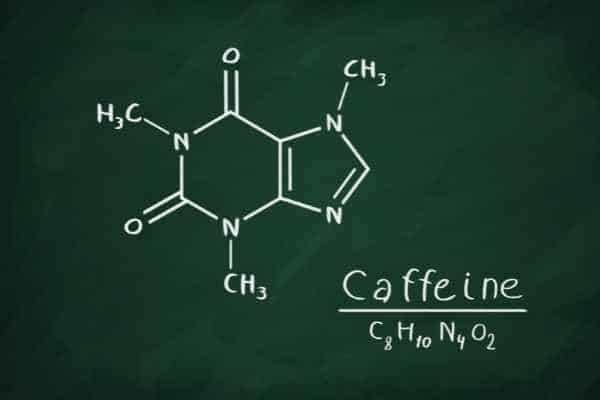
This might lead to new medications directed at specifically at this receptor for ADHD.
What is the Optimal Dose of Caffeine?
Trying to figure out the right amount of caffeine for the best alertness and focus? Again, this is based on your genetics and your tolerance.
In studies some people needed only a little bit of caffeine, but others needed 200mg of caffeine daily to get the benefits of caffeine for ADHD symptoms.

To figure it out, you’ll need to experiment and figure out what works best for you.
L-Theanine with Coffee
A new idea is combining caffeine with L-theanine.
L-theanine is well known as a cognitive enhancer (nootropic) which also reduces the jittery side effect of caffeine.
So taking L-theanine with your coffee lets you increase a caffeine dose for more focus and alertness, and blunting the jitteriness many people get with a higher dose caffeine.
Interested in L-Theanine?
Delay Your Morning Coffee!
So most people drink their caffeine as soon as they wake up. It turns we’ve all been doing it wrong!
Dr. Andrew Huberman shared his reasoning on why delaying your coffee intake for 90 minutes to 2 hours after waking will make it work better!

This goes back to how caffeine works (for people with the right genetics!) by blocking the adenosine our bodies produce to make us feel sleepy.
But Dr. Huberman explained that there is another factor to consider: our circadian rhythm also affects our sleepiness.
When we wake up and start moving about, we have a pulse of cortisol released from our adrenal glands which naturally suppresses our morning adenosine levels to make us feel awake.
And when you wake up in the morning, if you immediately drink coffee, you lose the benefit of that cortisol pulse, which is not ideal.

if you can delay your caffeine intake for at least 90 minutes from waking up, you can allow this natural circadian clock wake up mechanism to happen.
By doing this, you can use the benefit of caffeine to lift your alertness even more.
This method gives you a much better effect out of caffeine, more even effect, less of an alertness and then a crash…. if you can manage to wait to drink your coffee!
If you are looking for something to do while you delay your caffeine intake, go outside for a walk. Dr. Huberman is also known for putting a high priority on sunlight exposure right after waking to optimise your circadian rhythm and daytime alertness.
So try the switch and drink your first coffee a little later. Despite the first day or two being really difficult, you will then feel much better throughout the day.
Which is pretty much why we drink coffee isn’t it?
Looking for another option to improve focus?
Check out my review of Focus@Will, music that helps you focus! It really works!
Or my post on The Huberman Lab suggestions on supplements for brain health, which literally caused me to change my breakfast routine.
References
- Mechanisms of the psychostimulant effects of caffeine: Implications for substance use disorders
- ADHD 2.0: New Science and Essential Strategies for Thriving with Distraction–from Childhood through Adulthood
- Faster Than Normal Podcast: Overclocking the ADHD brain via musical energy with Focus@Will Founder Will Henshall
- Exploring the Role of Caffeine Use in Adult-ADHD Symptom Severity of US Army Soldiers
- New Developments on the Adenosine Mechanisms of the Central Effects of Caffeine and Their Implications for Neuropsychiatric Disorders
- Caffeine induces neurobehavioral effects through modulating neurotransmitters
- Effects of L-theanine-caffeine combination on sustained attention and inhibitory control among children with ADHD: a proof-of-concept neuroimaging RCT
- Tim Ferris Podcast: Andrew Huberman — A Neurobiologist on Optimizing Sleep, Performance, and Testosterone
- Huberman Lab Podcast: Master Your Sleep & Be More Alert When Awake | Episode 2